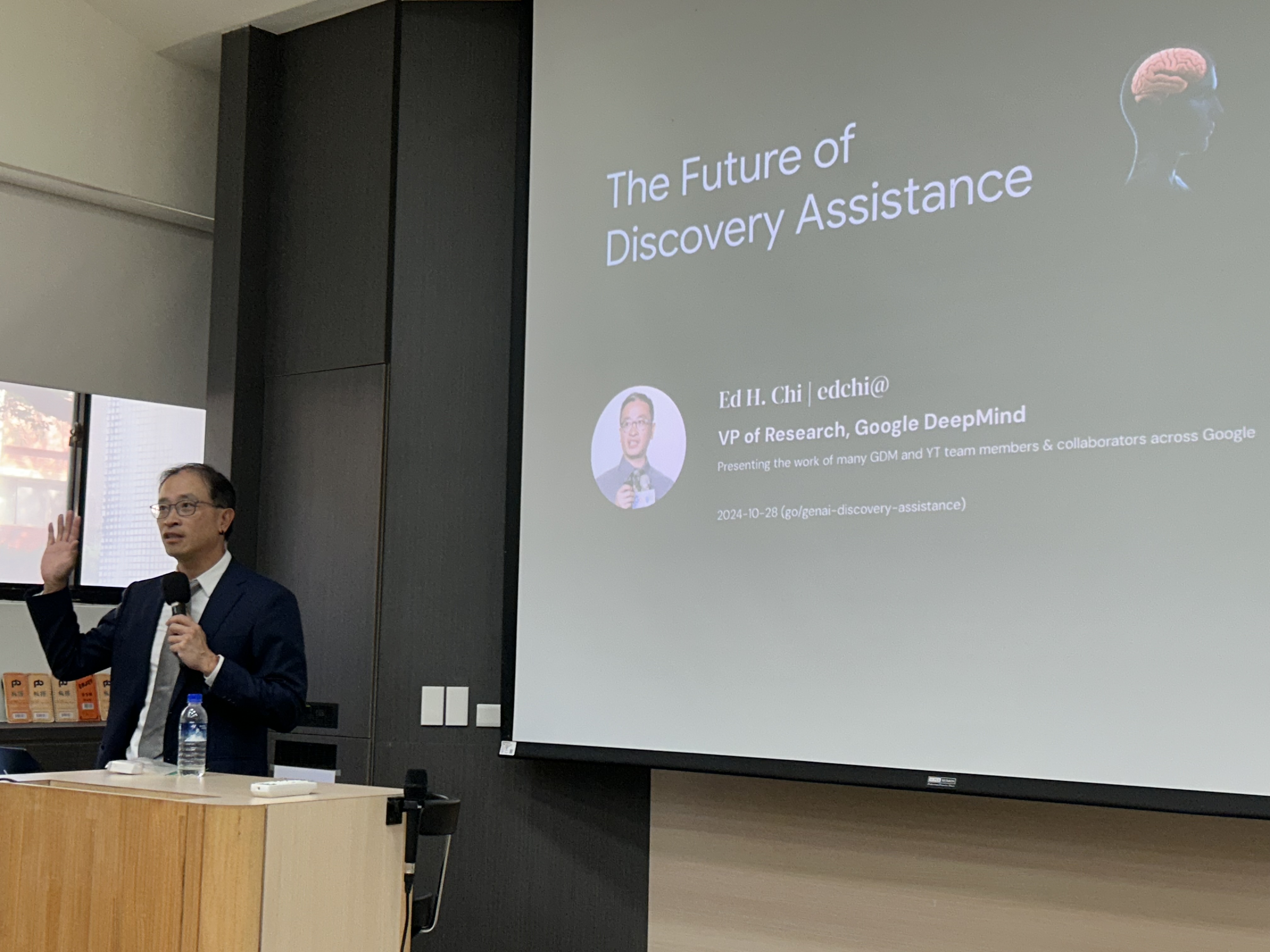Speech by Dr. Ed. H. (VP of Research at Google DeepMind):The Future of Discovery Assistance
- Published on
- Author
- 魏彣芯

Ed H. Chi is a renowned researcher in the world of Artificial Intelligence, with citations over 8000 on a single paper focusing on the usefulness of Chain-of-Thought prompting in Large Language Models. He is currently the VP of Research at Google DeepMind, and has much to share on the future of Recommendation Systems, a topic in which he has played an integral part for the past decade, relating to YouTube, Ads, News and other Google search functionalities.
He starts the talk by introducing the three components of recommendation: user, context and item. By removing any one or all components, different scenarios arise. For example, without any components, the recommendation would be categorized as mass marketing, recommending to all without caring who or what receives it.
It is revealed that neural networks are currently used for all recommendations scenarios above, using the exact same model each time. Ed Chi emphasizes the importance of this mode of recommendation, only to break it all down by introducing the new wave of Large Language Model innovation. Transformers sit at the forefront of the new era, powering Google’s Project Astra, a multi-modal assistant capable of recognizing context. Demo videos were shown of the system running in real-time, recognizing location, sketches and remembering the position of previously viewed items. He lauds this as the next generation of recommendation, being able to recognize the closest restaurant near you, their opening times, whether you’re in the mood for certain foods based on your recent searches, etc.
Transferring this concept over to recommendation platforms like YouTube, they will no longer just predict the most likely video you’ll watch and serve it, but every video as a reflection of your current state, and make changes accordingly in real-time. The transition to a Large Language Model based recommendation system might take some getting used to, and many tweaks until Google gets it right, but will ultimately become much superior at their given task.
Ending on a relatable note, Ed Chi points out the hesitance in Taiwan’s youth to speak out about new ideas, perhaps due to our education system’s emphasis on correct answers rather than innovative ones. Throughout the talk, he gives many chances for students to respond, and award stickers to those who do, promoting interaction. While Taiwan lacks the environment for Large Language Model recommendation research and development, he hopes that we all have a bright future ahead of us.
After the talk, many students approached the podium to ask questions regarding the current state of Large Language Models, especially the notion of Artificial General Intelligence. The reply was to focus on creating a great product, and let others worry about the definition. As a researcher, this is a great mindset to have, as general consensus has to be formed over time, and there’s not much one individual can do about it. We might eventually look back on the history of Artificial Intelligence, and realized we had already achieved what we were searching for all along.